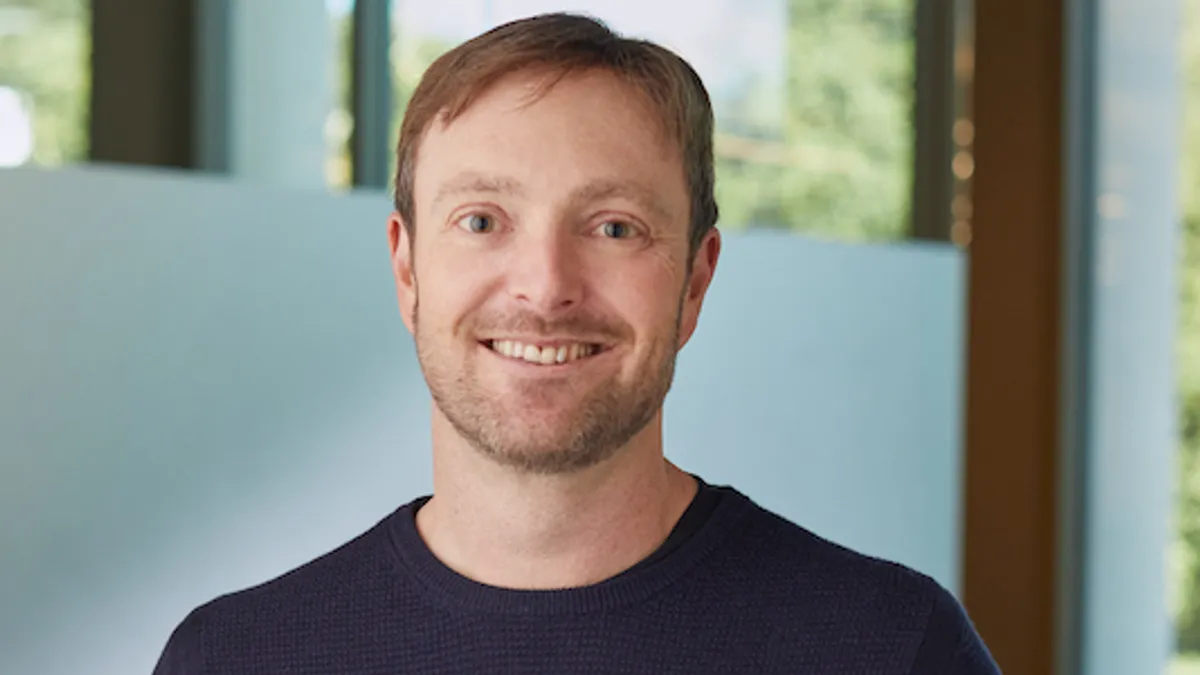PayPal CEO Alex Chriss made clear at an investor conference this week that the payments pioneer is putting a premium on revamping the company’s legacy branded checkout experience.
The new CEO, who took the top post at the San Jose, California-based company in September, has acknowledged the need for improvements in the business to jump-start profitable growth. He succeeded PayPal’s long-time leader Dan Schulman who had struggled to build profitability, especially in the core branded business.
“Branded checkout is an essential and important part of our business, and it is the number one priority for us,” Chriss said in answering questions Monday at the Morgan Stanley Technology, Media & Telecom Conference.
Chriss has followed in Schulman’s footsteps in promising to reduce “friction” in the branded checkout experience for consumers and merchants. Friction has come to serve as a negative description for any hiccup in a payment process, usually digitally, that slows, or deters, a consumer from finishing a transaction. Both CEOs have recognized such distractions have crept into the PayPal purchase experience.
“I think there are certain elements in which we have lost our advantage in frictionless,” Chriss said during the conference conversation. On “mobile checkout, we, over the last few years, lost the high ground in terms of being able to have the most seamless experience.”
In January, PayPal produced a flashy digital video commercial of Chriss explaining how the company is going to make that legacy tool more frictionless for its approximately 400 million consumer users as well as its 35 million merchants worldwide. It aims to speed up checkouts by using biometrics to sign consumers into its payment system, or by way of a guest checkout, for which customers don’t need to identify an account. Both of those options will be able to bypass password hurdles.
On Monday, Chriss explained how he plans to draw more users into the branded PayPal experience, partly by way of the company’s unbranded services offered through its lower-margin Braintree and PayPal Complete Payments units. While Braintree caters to larger enterprises, PPCP focuses on smaller businesses.
Merchants that offer guest checkout payment options often do so using Braintree and PPCP on the backend of their operations, where they are invisible to consumers. Chriss plans to harness that growing demand for those services to pull consumers to PayPal’s branded options. Some 60% of consumers still choose a guest checkout, according to Chriss, so he sees that as a major opportunity to win more users.
After a consumer selects the guest checkout option, Braintree can determine whether that consumer has been a PayPal customer in the past, and Chriss asserted that in 70% of cases the person is a former PayPal user. Given that, PayPal can auto-fill the purchaser’s information to increase the likelihood of the transactions being completed, benefitting the merchant, Chriss said.
For PayPal itself, it will be able to follow up with those guest checkout consumers to let them know they could have saved money, or received rewards, if they had used their PayPal account instead, Chriss explained.
While the CEO also said that rewards for consumers will be an integral part of attracting them to the tool and explained how the company will offer merchants an incentive to fund those rewards, he didn’t detail how PayPal rewards will be attractive to consumers or superior to rival offers. That could make a difference, as his host, Morgan Stanley analyst James Faucette, pointed out.
“You can look at markets around the world, just even on basic debit and credit, if you don't have rewards associated with that, the take-up is slow and the change in behavior is slow,” Faucette said in response to Chriss during the conversation.
Ultimately, Chriss said his PayPal strategy turns on ubiquity. “I want to make sure that PayPal is available and is a choice for every purchase everywhere, every time,” Chriss said. He said he’s in the early stages of traveling the world to make that happen.














